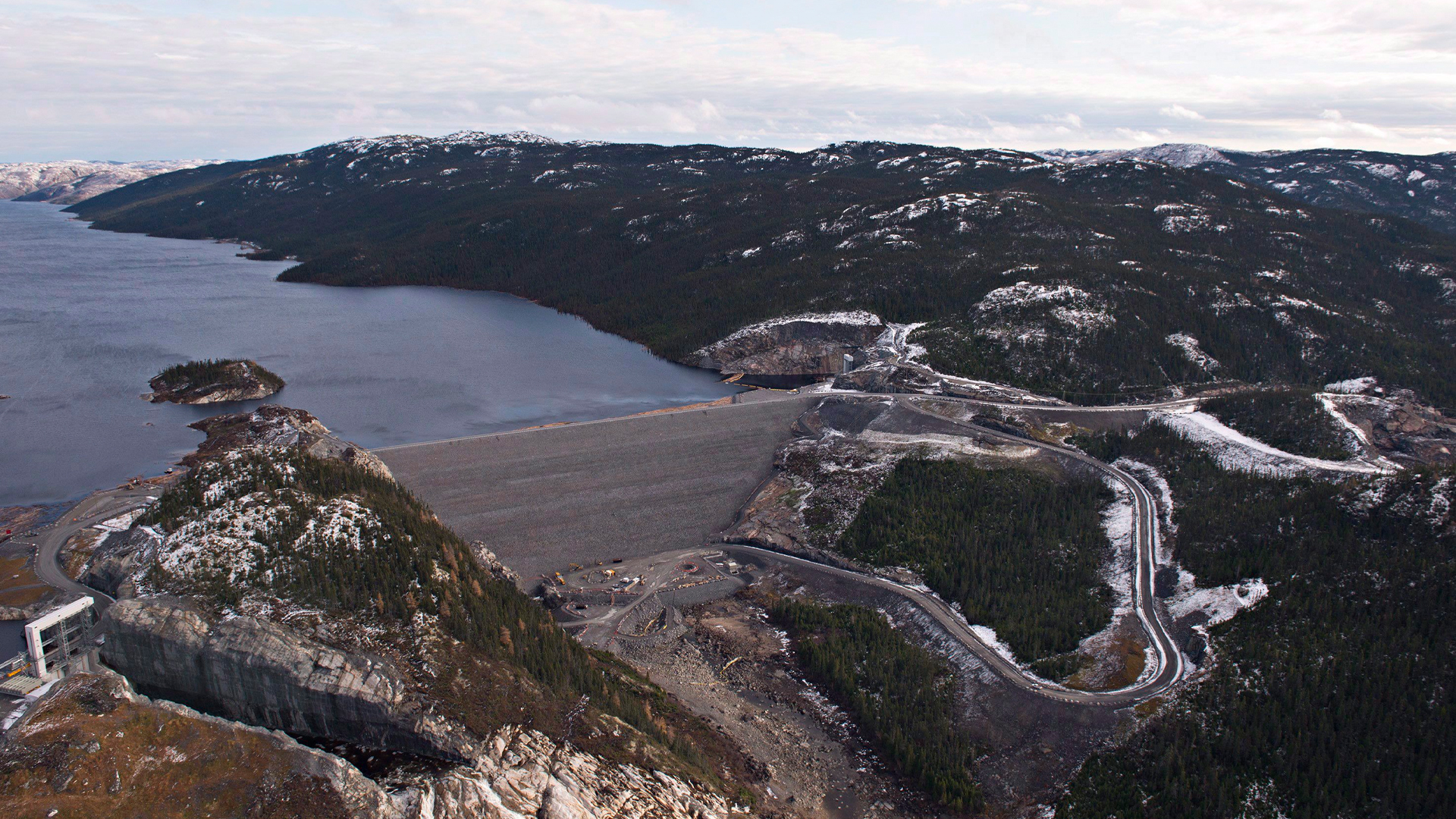
Many governments across Canada promote electrification as their main strategy to pursue greenhouse gas emission reduction targets. This makes good sense. Canada has a very clean grid. Eighty-three per cent of electricity produced is already non-emitting, thanks to historical investments in generating infrastructure such as hydro dams and nuclear facilities.
Now, policymakers have ambitious plans for Canadians to electrify their energy needs for things like transportation and home heating.
What are Canadians’ plans?
New polling results from the University of Ottawa’s Positive Energy program and Nanos Research suggest Canadians aren’t nearly as ambitious as governments on electrification. That could pose a significant challenge when it comes to getting buy-in on new policy measures, particularly if they have an impact on energy affordability or reliability.
We asked Canadians to think about their energy needs for things like transportation and home heating, and to tell us what best describes the actions they plan to take to transition more of their energy use to electricity. The good news is that two-thirds of Canadians are interested in transitioning, with about four in ten (41 per cent) saying they are interested but haven’t started yet and another one in four (25 per cent) saying they are interested and have taken steps to do so.
The not so good news is that for the remaining third of Canadians, one in four (26 per cent) said they are not interested in transitioning and the remaining eight per cent said they are interested but have done all they plan to do.
There was some variability in electrification plans. For example, younger people were more likely to be interested in electrification but haven’t yet started (46 per cent for 18 to 34-year-olds), while people living in the Prairies were most likely to say they are not interested in electrification (38 per cent).
When we asked Canadians why they answered the way they did, the results are illuminating. The top reason provided was affordability and cost (36 per cent). Those who are interested in transitioning but haven’t started yet were the most likely to cite this as their reason (52 per cent), followed by not being ready to change or not needing to replace their car or heating (18 per cent) and lacking confidence in new technologies or having too many uncertainties (12 per cent).
Affordability and cost were also the top reason for those not interested in electrification (44 per cent), followed by not having enough confidence in technologies or having too many uncertainties (17 per cent) and not having enough infrastructure or capacity, or living in a rural setting (15 per cent).
Interestingly, those who have begun taking steps to electrify and those who have done all they plan to do provided similar answers, noting they already had an electric or hybrid vehicle (36 per cent and 49 per cent, respectively), electric heating or heat pump (32 per cent, 30 per cent) and that they had reduced their consumption by using less electricity and improving their energy efficiency (24 per cent and 26 per cent, respectively).
Although affordability, confidence in technologies, and uncertainties are holding many people back from electrification, it doesn’t mean Canadians don’t care about climate.
In the same survey, we asked Canadians to tell us on a scale of 0 to 10 whether they believe now is the best time or the worst time to be ambitious about addressing climate change even if there are costs to the economy. Over half of Canadians (57 per cent) say now is the best time (score of 7-10), rather than an okay time (4-6, 18 per cent) or the worst time (0-3, 24 per cent). These are the second highest scores since the onset of the pandemic when tracking began, with a peak of 64 per cent in the summer of 2021. They also increased significantly since we asked the question last fall, up from 48 per cent giving a score of 7-10.
However, Canadians’ climate ambition doesn’t appear to be translating into the will to electrify more of their energy needs.
To better understand peoples’ energy priorities, we asked them to rank the importance of four energy needs of Canadians in the next five years: lowering greenhouse gas (GHG) emissions of energy, affordability, reliability and safety.
Overall, respondents ranked affordability as the most important need in the next five years (39 per cent), followed by lowering GHGs (31 per cent) and reliability (20 per cent). Reliability was most frequently cited as the second most important need (39 per cent, followed by affordability and safety at 24 per cent each). Safety was the most frequently cited response for the third need (37 per cent, followed by reliability at 28 per cent and affordability at 18 per cent). Lower emissions energy was most frequently cited as the fourth most important need (37 per cent), followed by safety (27 per cent), affordability (20 per cent) and reliability (13 per cent).
The results underscore that when it comes to energy, climate is just one priority among several factors that weigh on people’s minds – affordability, reliability and safety are also important areas of concern.
To dig deeper on affordability, we asked people about their level of concern for energy prices over the next six months. The results are sobering: people are worried about affordability. Two-thirds of Canadians are concerned about energy prices (66 per cent, score of 7-10 on 10), with 32 per cent rating their level of concern a 10 out of 10. About one in five (19 per cent) gave middle range scores (score of 4-6) and only 14 per cent are not concerned (0-3).
What signal do these findings send to our elected officials? Ultimately, these results suggest that persuading more Canadians to choose electrification is about far more than a sales job. People’s views are multifaceted and require thoughtful and sophisticated policy approaches.
As citizens, people do want to see climate action. But as consumers, they rank their priorities using their pocketbook and their need for dependable energy. Climate is a priority, but energy reliability and affordability are paramount.
This research tells us that if policymakers are serious about moving the needle on electrification, they have work to do to get Canadians on board. This needs to happen in two ways. First, governments must make a compelling case to people why they should be electrifying more of their energy needs.
Second, they must ensure the pace and scale of electrification keeps energy affordable and reliable. Otherwise, many Canadians risk balking at more ambitious electrification measures.
Approaches that integrate reliability, affordability and emissions reductions are crucial for Canada to succeed on its journey to net zero.
Methodology
Positive Energy/Nanos Research, RDD dual frame hybrid telephone and online random survey, April 30 to May 3, 2023, n=1080, accurate 3.0 percentage points plus or minus, 19 times out of 20. Report details are available here. Some of the figures are weighted to the true population proportion and the charts may not add up to 100 due to rounding.
Questions
Figure 1: Thinking of your energy needs for things like transportation or heating your home, which of the following best describes the actions you are taking to transition more of the energy you use to electricity and away from things like gasoline for your vehicle or natural gas for your furnace?
Figure 2: As you know many Canadians are concerned about both climate change and the economy. On a scale of 0 to 10 where 0 means this is absolutely the worst time and 10 is absolutely the best time, how good a time is it for Canada to be ambitious in addressing climate change even if there are costs to the economy?
Figure 3: Thinking about the energy needs of Canadians in the next five years, please rank the importance of the following where 1 is the most important, 2 the second most important and so on.
Figure 4: On a scale of 0 to 10 where 0 is not at all concerned and 10 is very concerned, how would you rate your concern for energy prices you will pay for things like heating and transportation over the next six months?












